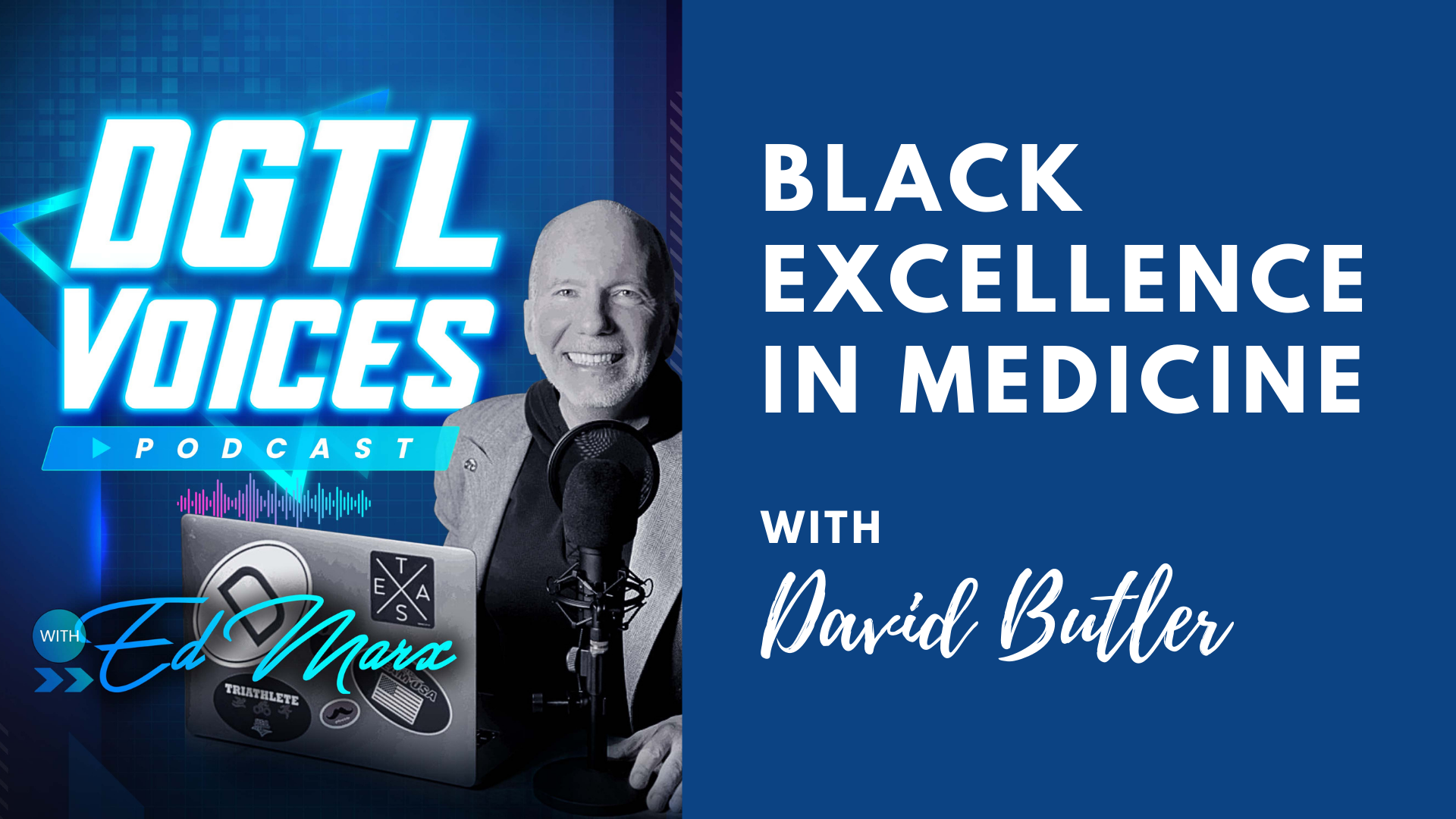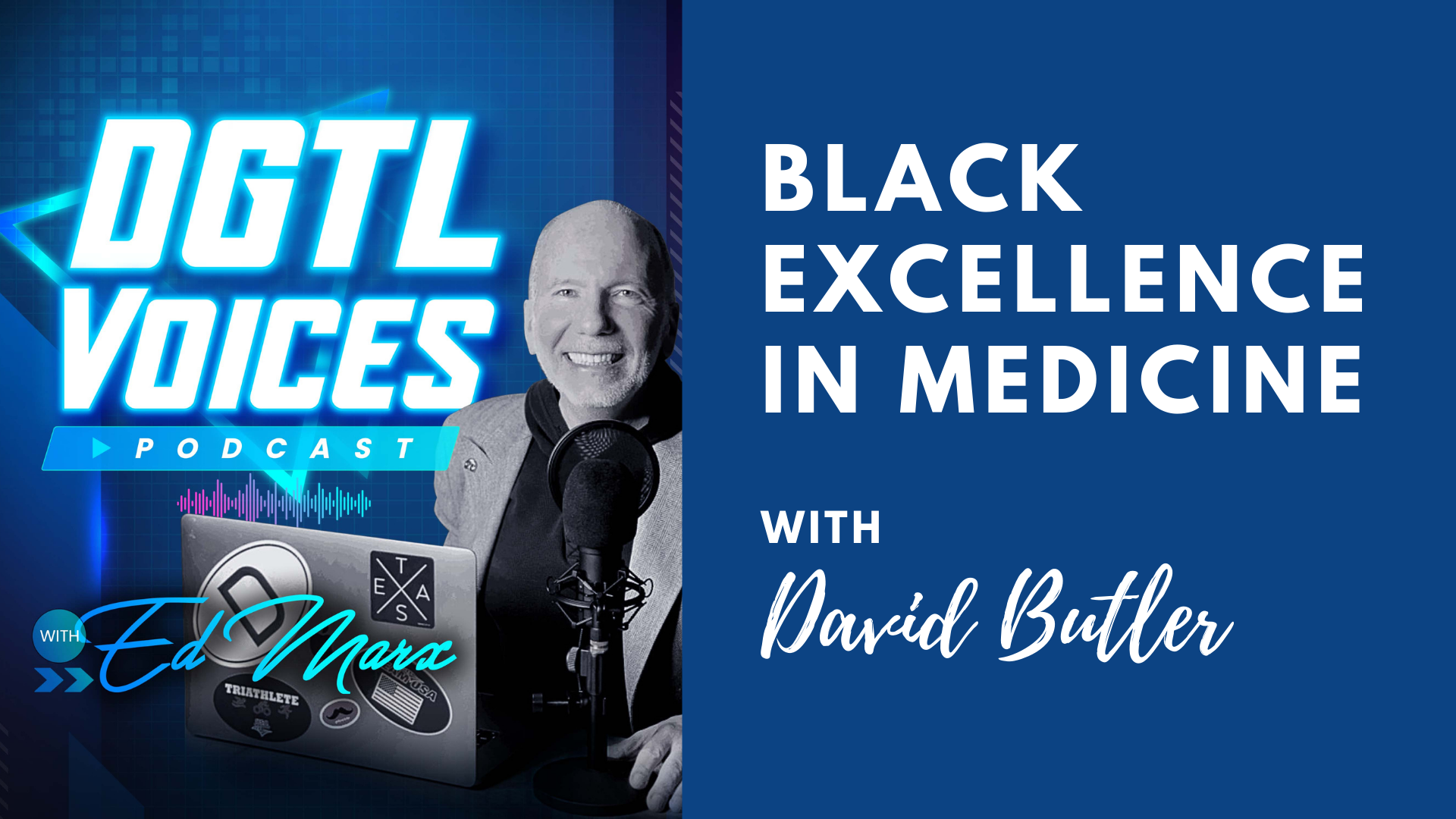Black Excellence in Medicine


In a recent podcast, Ed Marx explored DGTL Voices from the perspective of Dr. David Butler, a black clinician. We may think that we know how others think and feel, but we really don't know unless we are living that experience. It is really important that we continue to have these sorts of dialogues and our guest today is an excellent choice to lead that discussion.
Dr. Butler is a Physician Executive with over 20 years’ experience managing the dynamic intersection of clinical care delivery and healthcare technology from a frontline provider to the C-suite in medium and large healthcare delivery systems. As a trained Internist and Pediatrician, he has worked as a hospitalist and in the clinic setting where he gained a deep understanding of patient movement across the care continuum, as well as the role that ‘frictionless’ technology plays for patients, caregivers and administrators. David is considered an industry thought leader at Electronic Health Record (EHR) implementation, stabilization, and optimization.
What was your motivation?
"I grew up in small town Texas, the youngest of five kids, and we weren't well off. My mother worked in a senior home for 35 years. So, I often tell people I grew up with 20 grandparents. My life mantra has always been the age old: "Be kind to those that you pass on the way up, because those will be the same folks you meet on the way down." That is the humility that my mother taught me. Give grace and you'll receive grace.
My mother always made sure that I was grounded and always busy. I was a smart kid in a small town and vacation was a time of year and not a destination. The town was segregated geographically, the blacks lived on the south side and the whites lived on that side with the swimming pool, golf club and baseball field. We mingled during the day at school, but after hours we went our sides of town and that is just what it was. However, I learned a lot later on that there was a lot of racism in this."
Do you believe you have been treated differently because of the colour of your skin?
"In the professional setting being black has definitely limited me in a lot of ways, but also I am a very extroverted person. I was the leader of my class since sixth grade, so I think there have been so many thoughts that have been instilled in me about being "10 times better" so that you can get in to the room. Get in to the college and you can be at the table to help them to understand that the black people that they have seen on TV in a negative context (especially in the 60s and 70s) are not really who we are.
I have had that burden on my shoulder. I call it a burden, but it is a gift and a curse. A lot of my white friends don't understand why I need to represent all black people when "I can just be me", but I didn't understand how they could think that, because it was so imbedded within me to do this. They would say that they liked me for me and that I didn't have to change, but not everyone had the same thought. This is something that is always in the back of our minds."
How can we approach things differently to eliminate racism?
"One area to consider is that the views that I have come from my personal experience and the formative roots that created who I am as a person. So, just because you have a black friend that does not mean you are an ally. Just because you are married to a black woman does not mean you are an ally. You love that one particular person individually. You can individualize the person and generalize the negatives of the race.
Implicit bias is something that we as a human race have been doing for a long time and we need to dig down into ourselves to understand why we do that in order to make any change in that behaviour. We are not perfect and we all have biases. For instance, I could come across a pitbull and a poodle in the street and whilst I have never had anything negative happen to me personally by a pitbull, I'm still probably going to go to the poodle. This is implicit bias, meaning that the bias is deep within us. You might not be able to identify what that is or why you feel that way, but in order to move forward we need to address those thought processes."
